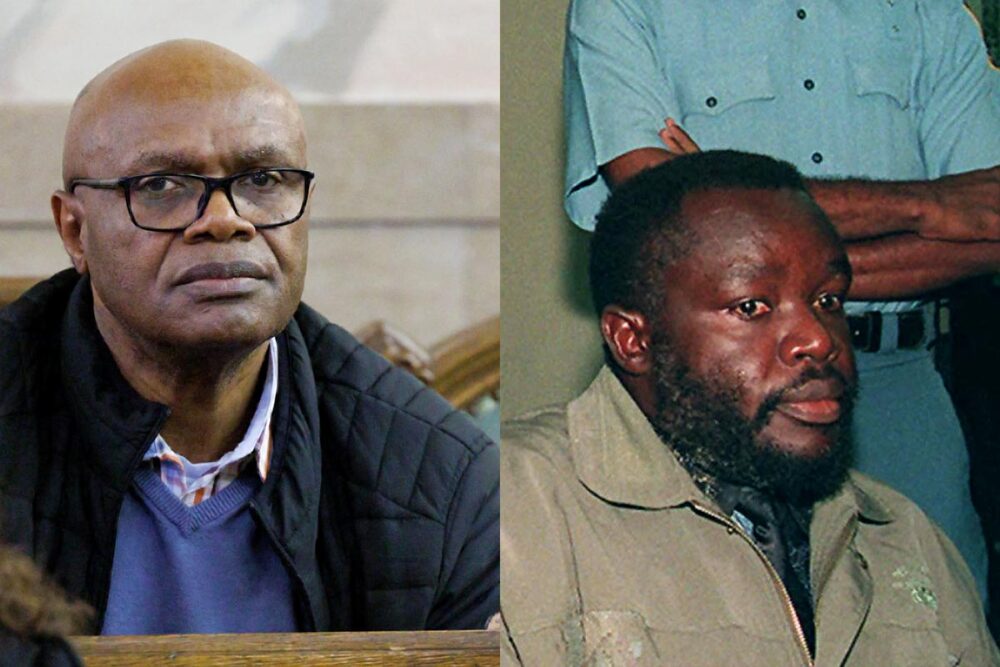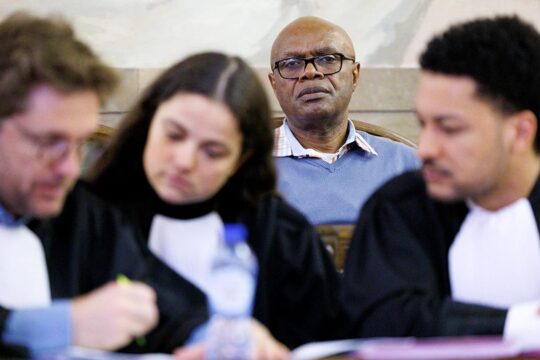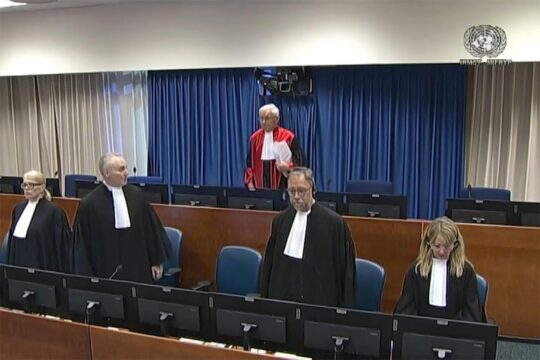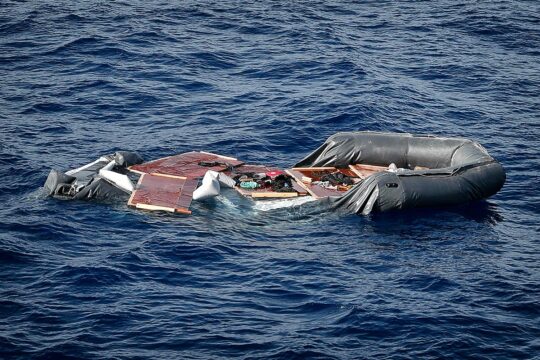Right from the start of the trial on April 8, Emmanuel Nkunduwimye's lawyer set the tone. “I will fight only so that we don't convict a man without proof, that we don't condemn someone if there is still a doubt,” said Dimitri de Béco. The Brussels-based criminal lawyer, who was only ten years old at the time of the Tutsi genocide in 1994, will therefore stick to criminal law, without straying into the sensitive terrain of Rwandan political history.
This sober line of defence was evident the next day in the defendant's answers to questions from the presiding judge on two points in particular: Georges Rutaganda's responsibility in the genocide, and the reality of massacres committed in the Amgar building complex in Kigali.
This Belgian trial is directly linked to another one held 25 years ago -- the trial of Georges Rutaganda at the International Criminal Tribunal for Rwanda (ICTR). Rutaganda was second vice-president of the National Committee of the Interahamwe, the militiamen considered to have spearheaded the genocide committed in Rwanda between April and July 1994. The ICTR sentenced him to life imprisonment in 1999. His sentence was confirmed on appeal in 2003, and he died in custody in 2010. No one disputes that Nkunduwimye and Rutaganda were very close and regularly travelled together during the genocide. Nkunduwimye was a witness at Rutaganda's trial and painted a glowing portrait of his friend. As recently as 2011, he told Belgian investigators that he had never seen Rutaganda commit “the slightest criminal act” and that he considered his conviction by the ICTR to be “purely political”.
This is not the version he gives today. Asked by the president of the court what he thought of Rutaganda’s conviction, he replied: “I accept it, because he was part of the Interahamwe, but I'm also uncomfortable with it because I also know he saved my family. But he was known in the country for those things.”
“Rutaganda knew I was under threat”
Nkunduwimye, who looks well-groomed and speaks clear French, maintains he was in no way involved in the massacres committed by the Interahamwe that his friend led. He insists he only moved around with Rutaganda because Rutaganda was protecting him. He says he was a target because his brother-in-law had financed the Rwandan Patriotic Front (RPF), the armed rebellion formed by exiled Tutsis. In April 1994, war raged in Rwanda between the RPF and the Hutu-controlled government army, whose allies were the Interahamwe. “[Rutaganda] knew very well that I was under threat, that if I stayed, someone might assassinate me. My name had already been announced,” Nkunduwimye says. If he wore a military jacket, carried a weapon and sometimes travelled surrounded by Interahamwe, it was for this reason alone, he maintains. “I never learned how to handle weapons. If I had one, it was just to show at the roadblocks that I was an official. It was Rutaganda who gave me the gun,” he told the court. “I never took part in Interahamwe National Committee meetings, and I couldn't give orders to my escort,” he said in response to various questions from the parties to the trial.
Testimonies gathered by the investigators differ. Some witnesses support the accused's version, asserting that he was merely seeking Rutaganda's protection; others maintain that Nkunduwimye, who ran a garage in the Amgar complex, was involved with the Interahamwe by choice, and that he took part in massacres with them.
Accused admits there were crimes at Amgar
At the end of his interrogation, Nkunduwimye went one step further. Asked by his lawyer to clarify what he knew about the murders committed in Amgar, he added another important nuance to what he said earlier in the investigation. In 2011, he stated that “no one was killed in Amgar” and that “no weapons were stored there”. Now on April 9 he said “no one was killed inside the Amgar compound” but that “outside the compound, there was killing”.“I don't know what they did with the bodies,” he added, “but in any case you could hear the shots.”
During an ICTR mission to Amgar in 1996, forensic experts discovered 27 bodies in pits located right next to this building complex in the Rwandan capital. Their forensic examinations established that all the victims had died violent deaths, and that the time of death corresponded to the period of the genocide.
The trial is scheduled to last until June 3, after the hearing of some 100 witnesses.








